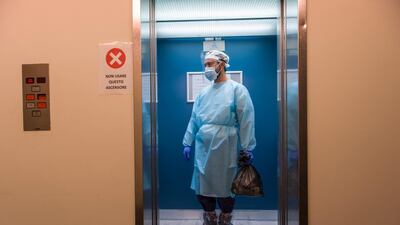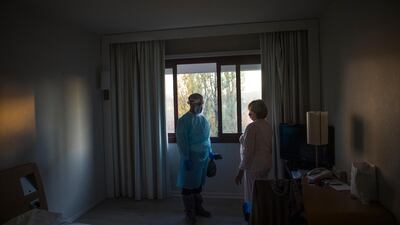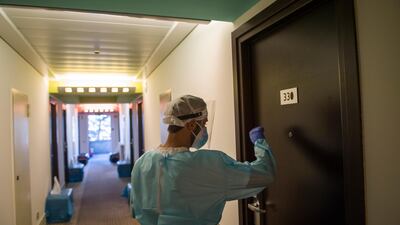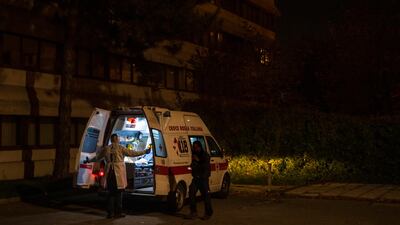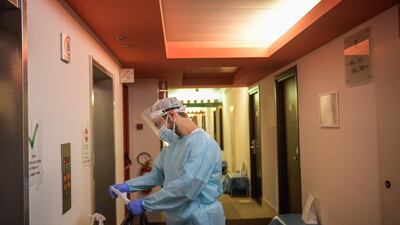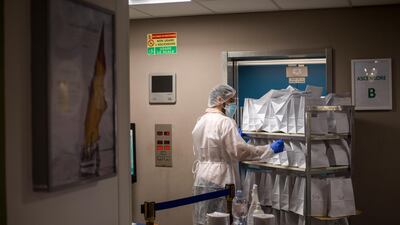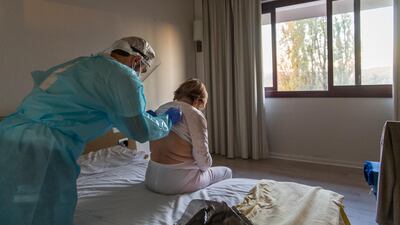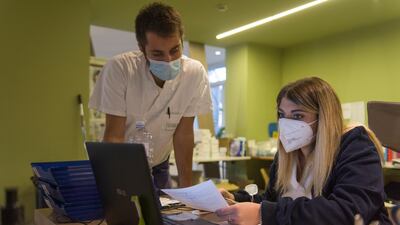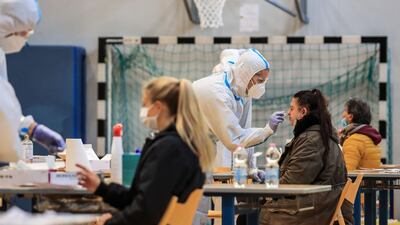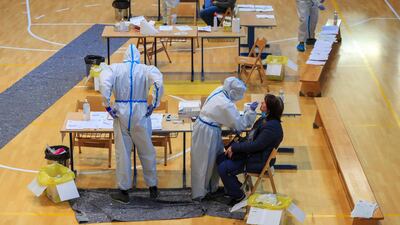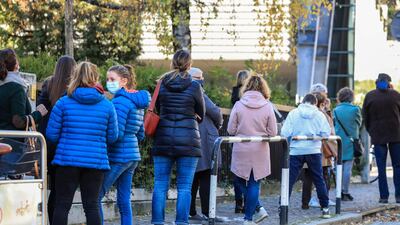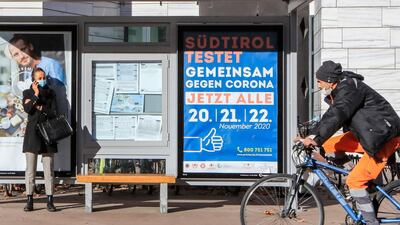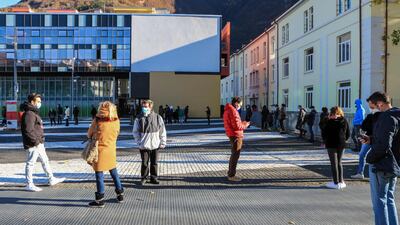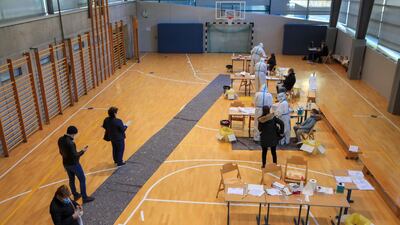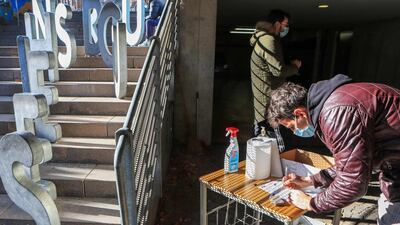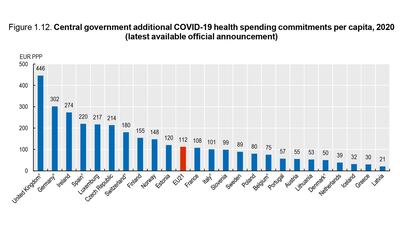Italian hospitals are struggling to cope with a huge influx of patients as the country continues to battle the second coronavirus wave sweeping across Europe.
Medical facilities are reporting an acute shortage of specialist doctors in almost all of Italy’s 20 regions.
The second wave has differed from the first which began in March, when the south of the country was spared from severe inflection. This time, the whole country is struggling to fight the pandemic and it has highlighted weaknesses in the Italian healthcare system.
Italy has approximately 10,000 ICU beds, but only enough anaesthesiologists for around half should full capacity be reached.
"During the first wave in March we were lacking ventilators and ICU beds. Now we have those resources but we need the specialist staff," Professor Frank Rasulo, associate professor in anaesthesiology and intensive care at the University of Brescia, told The National.

“One ICU bed doesn’t just mean a bed, it means a trained nurse and trained doctor. To combat these shortages at our hospital we have turned all our residents to work on coronavirus, and with nurses it’s almost the same story, but that isn’t a complete solution to the problem,” he said.
Over the past 20 years the country has seen the number of healthcare professionals begin to dwindle as young graduates take better paid opportunities overseas. The most recent figures show that the number of practising general practitioners decreased from 47,148 in 2000 to 42,987 in 2019.
"In addition to doctors we also urgently need paramedics," Giovanni Leoni, the vice-president of the Italian order of doctors, told The National.
“They cannot cope with the demand at the moment because some teams are stuck in queues outside hospitals for hours. Everyone is rushing to see a doctor, even if they have the slightest symptoms, and that is putting serious pressure on the entire system,” he said.
A horrifying video showing a man lying dead of suspected Covid-19 under the restroom sink of the emergency department of Cardarelli Hospital in Naples sparked controversy across Italy last week, and prompted the country’s foreign minister, Luigi Di Maio, to say the army should be drafted in to help with the worsening situation in the south.
The same hospital has seen queues of cars lining up to admit patients with the virus, leading to hospital staff having to administer oxygen through peoples’ car windows to alleviate discomfort.
Italy’s Ministry of Health is responsible for administering the nation’s healthcare, however, over the years control has decentralised to the regions and some have better funding than others. This fragmented approach has made it more difficult for the different regions to co-ordinate with each other or to work with the Ministry of Health.
"The lack of national direction means the regions are really on their own," virologist Dr Elisabetta Groppelli told The National.
“The first national lockdown was all about protecting the south of Italy and in some ways it worked, we didn’t see the outbreak there that we are seeing now. The tiered system in Italy isn’t effective. In a way, it’s similar to what the UK had in the autumn when milder regional restrictions were imposed, but, as we have seen in the UK, mild restrictions are not enough to curb viral spread.”
Italy’s Prime Minister Giuseppe Conte has resisted calls for a nationwide lockdown and has opted for a three-tiered regional approach. The red, orange and yellow categories have varying degrees of restrictions depending on the infection rate and available intensive care beds.
Prof Rasulo rejected the Prime Minister’s reasoning for not implementing a full lockdown like the one in March.
"To solve this problem quickly you have to take quick action." Drawing a comparison with the plot of 1999 film The Matrix, he added: "The red pill is you do nothing, lots of people die but the economy survives. The green pill is a total lockdown that saves lives but hits the economy hard. The blue pill is a semi lockdown that hits the economy but also leads to deaths and stress on hospitals. Italy took the blue pill. We should have taken the green one".
